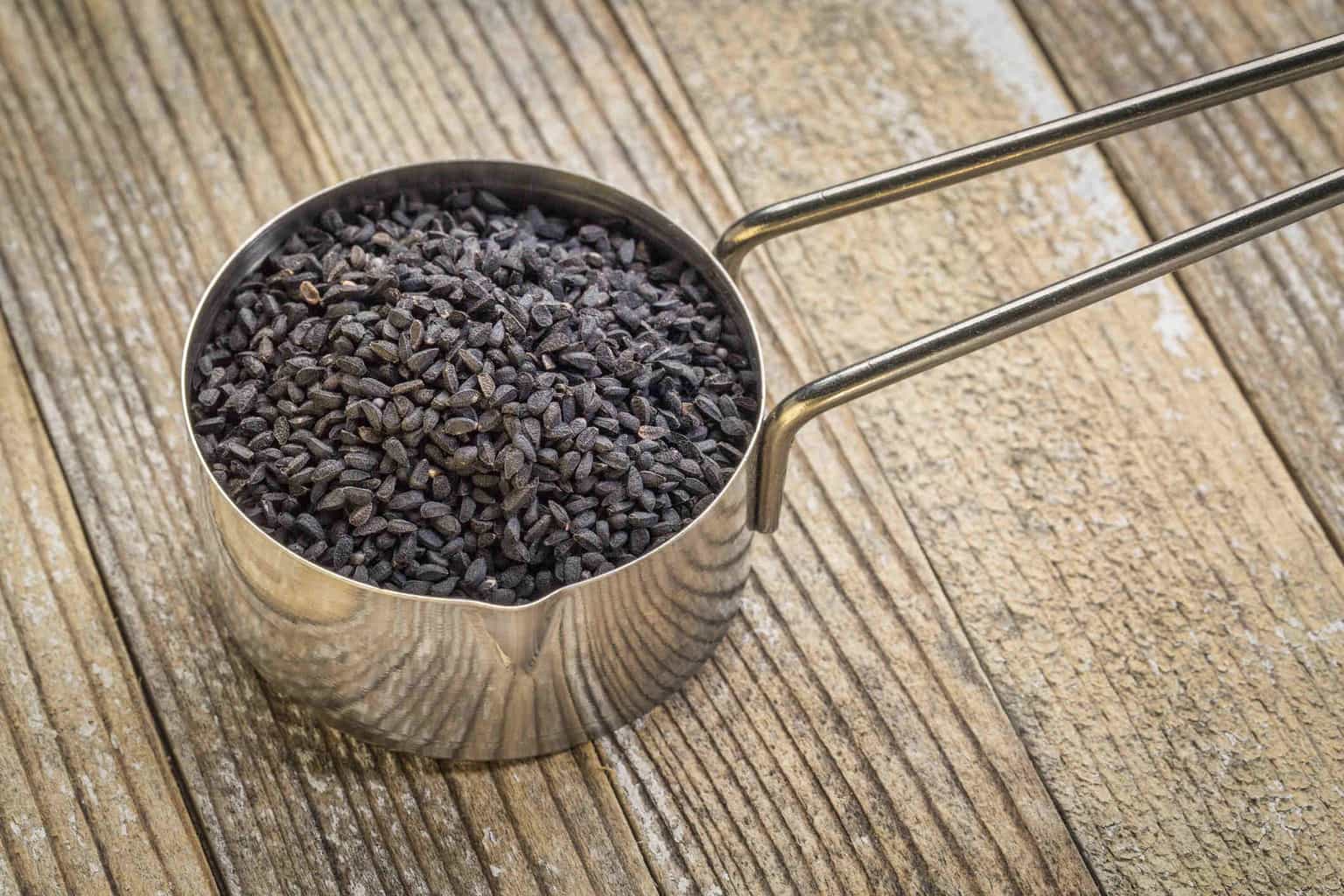
[cmamad id=”11226″ align=”center” tabid=”display-desktop” mobid=”display-desktop” stg=””]
I love Indian food, and I cook it a lot at home.
One of the ingredients that I use is called black cumin seeds.
And it turns out that black cumin seeds have many significantly important medicinal uses.
After today’s newsletter, you may want to think about adding black cumin to your diet.
What is black cumin good for? Well, black cumin seed benefits so many things in our health.
It has positive impacts on blood sugar issues, low libido, and almost everything else that afflicts a man.

This study showed a positive impact on blood sugar, blood pressure, and body weight in adults.
Although, this study was rather small.

Favorable impact of powdered N. sativa (Kalonji) seed in capsule was noted on almost all variables
There are also some good study results on black cumin seeds for low thyroid and oxidative stress.
These are the cause of many chronic diseases.
[cmamad id=”11227″ align=”center” tabid=”display-desktop” mobid=”display-desktop” stg=””]

Many people have low thyroid, and they do not want to take thyroid medication.
One way how to improve thyroid function is to use black cumin seeds.
It is possible that black cumin seeds can raise thyroid levels without actually taking thyroid hormone.
So, here’s really good news from this randomized controlled study.
Treatment with Nigella sativa significantly reduced body weight and body mass index (BMI).
And not only that but, black cumin seeds normalized low thyroid levels.
Serum T3 concentrations increased in Nigella sativa-treated group after 8 weeks.
Virtually every study that I have seen shows you need to be taking back human seeds or black cumin seed oil for at least six or eight weeks before the effects are noticeable.
But black cumin seeds for weight loss can be a tasty treatment.
So, how to take black cumin seeds?
The human dose seems to be about 2 g ground-up each day.
This dose is easy to get via capsules.
You can also purchase the seeds from an Indian grocery and grind them in a coffee grinder — though you should not use it for coffee anymore.
Some people find that the seeds are more palatable when they heat them briefly in a skillet.
Indian cooking usually emphasizes roasting the seeds a bit in a skillet until the aroma rises from the pan.
Maybe this will make it more palatable for you.
It doesn’t appear that they roasted the seeds in the study, but you may try it.

https://www.ncbi.nlm.nih.gov/pubmed/19500003
The effects of Nigella sativa on thyroid function, serum Vascular Endothelial Growth Factor (VEGF) – 1, Nesfatin-1 and anthropometric features in patients with Hashimoto’s thyroiditis: a randomized controlled trial
https://bmccomplementalternmed.biomedcentral.com/articles/10.1186/s12906-016-1432-2

Leave a Reply